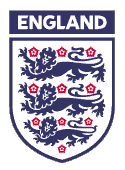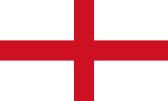 One of the most famous answers came from Stanley Baldwin, considered to be one of the most "English" of Prime Ministers, in his classic speech On England, delivered to the Royal Society of St George in April 1924:
One of the most famous answers came from Stanley Baldwin, considered to be one of the most "English" of Prime Ministers, in his classic speech On England, delivered to the Royal Society of St George in April 1924:The sounds of England, the tinkle of the hammer on the anvil in the country smithy, the corncrake on a dewy morning the sound of the scythe against the whetstone, and the sight of a plough team coming over the brow of a hill, the sight that has been seen in England since England was a land, and may be seen in England long after the Empire has perished and every works in England has ceased to function.And yet Baldwin's mother was half Welsh, half Scottish. Less than twenty years later George Orwell noted:
We call our islands by no fewer than six different names, England, Britain, Great Britain, the British Isles, the United Kingdom and, in very exalted moments, Albion.For a long time many have claimed that England has taken over the rest of the United Kingdom. A glance at my bookshelf shows a number of books on the history of the country, such as the Oxford History of England. Perhaps it's not so much the case that England has taken over the rest of the United Kingdom but the United Kingdom has taken over England. "England" does not exist as a legal entity. There aren't really such things as "English only" laws, rather there are laws that don't apply to Scotland, Wales and Northern Ireland. "Anglo-(say) German" relations means the relations between Germany and the United Kingdom, not England. Many foreigners call the state "England". The identity of England has been suppressed within the United Kingdom.
It's telling that about the only time England becomes an issue politically is in relation to proposals for solving the West Lothian question. The demand for a Scottish Parliament originated out of a desire to enhance Scotland and do things for that country. By contrast the desire for an English Parliament is a mere reaction to developments in Scotland, rather than any real desire to enhance England.
And so what are we left with? In my first year as an undergraduate I took a module on the British Home Front during the Second World War. One of the first things the lecturer said to us was, "I'm Scottish, so anyone who calls the country 'England' will automatically fail!" Later in one seminar we had a discussion about concepts of nationhood and we partook in a quick test - what was the first word we thought of when we heard the following words:
"Britain" - I came up with "Great".Yes football. This is one of the few times that England really does roar in its own right. In other sports the country either plays as the UK or the non-English teams are so invisible that "England" often becomes de facto the team for the entire country. How many of us actually know that the "English Cricket Team" covers England and Wales? Who's ever actually heard of the Scottish Cricket Team? And who knows just what the Irish Cricket Team covers?
"England" - I came up with "Football".
 But when the England football team is playing it's the one time when England truly roars. Every time there's a major international football tournament, football mania sweeps England and everyone starts dreaming of repeating the glory of the 1966 World Cup Final.
But when the England football team is playing it's the one time when England truly roars. Every time there's a major international football tournament, football mania sweeps England and everyone starts dreaming of repeating the glory of the 1966 World Cup Final.But is this all England is about? Baldwin's plough team was a increasingly rare feature even in his day - as Orwell noted during the Second World War:
The horse plough will give way to the tractor. . . but England will still be England.St. George's Day itself is not celebrated much. Maybe that's because May Day is historically the day of celebration, and more recently the Bank Holiday, at this time of year, whilst Easter is nearby (and sometimes, as in 2000, falls on April 23rd). So there are none of the great parties and wild celebrations that mark every St. Patrick's Day. Without such great celebrations, is it any wonder that "Englishness" becomes harder to define?
There are often calls for a bank holiday on St. George's Day, but it could be messy. In 2000 Easter Monday wound up just one week before May Day - adding in a fourth bank holiday in what can be as little as three or four weeks would be overkill. It would be much better to have a new bank holiday in the autumn.
 It may be invisible, it may be hard to define, but there is a clear spirit of England. Maybe in years to come more and more of what England is will be found. But for now let's raise a glass of warm beer to England.
It may be invisible, it may be hard to define, but there is a clear spirit of England. Maybe in years to come more and more of what England is will be found. But for now let's raise a glass of warm beer to England.Happy St. George's Day.
No comments:
Post a Comment